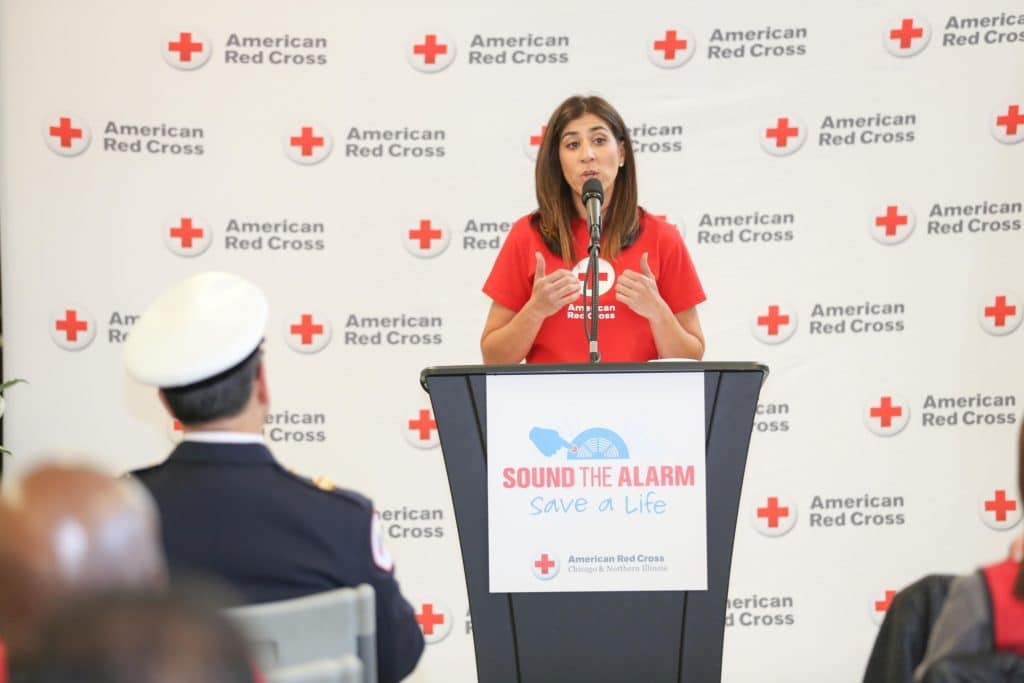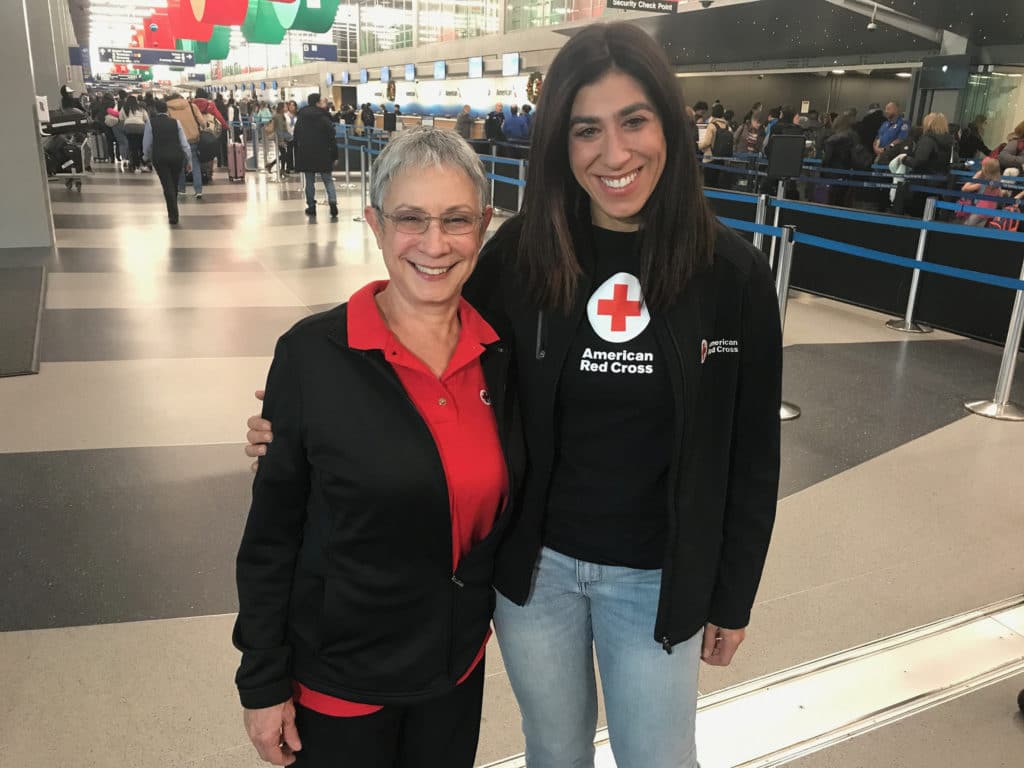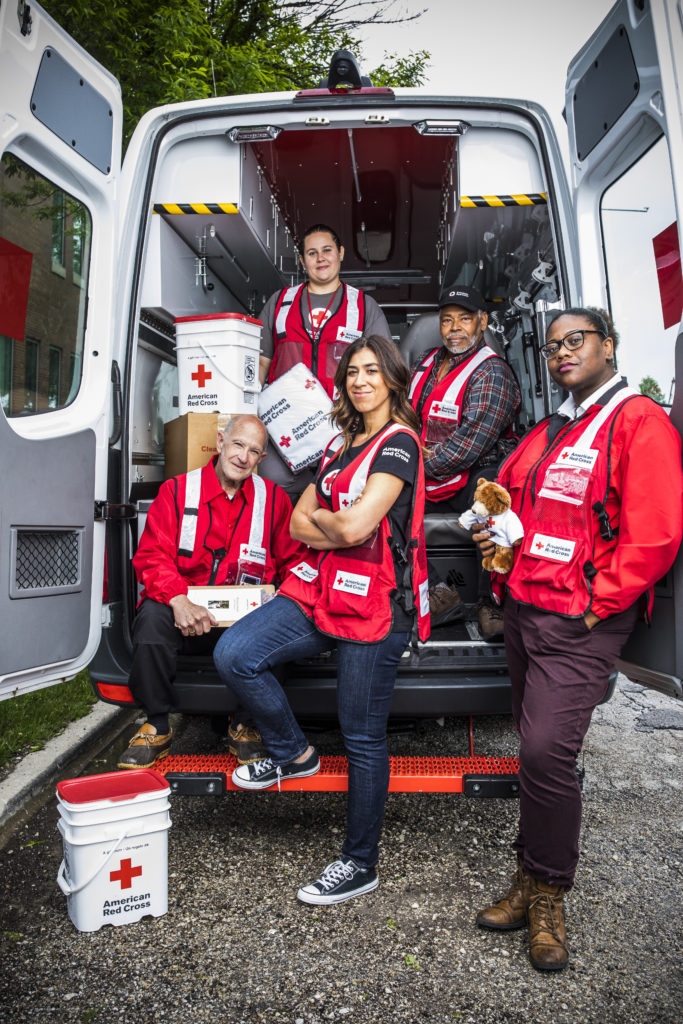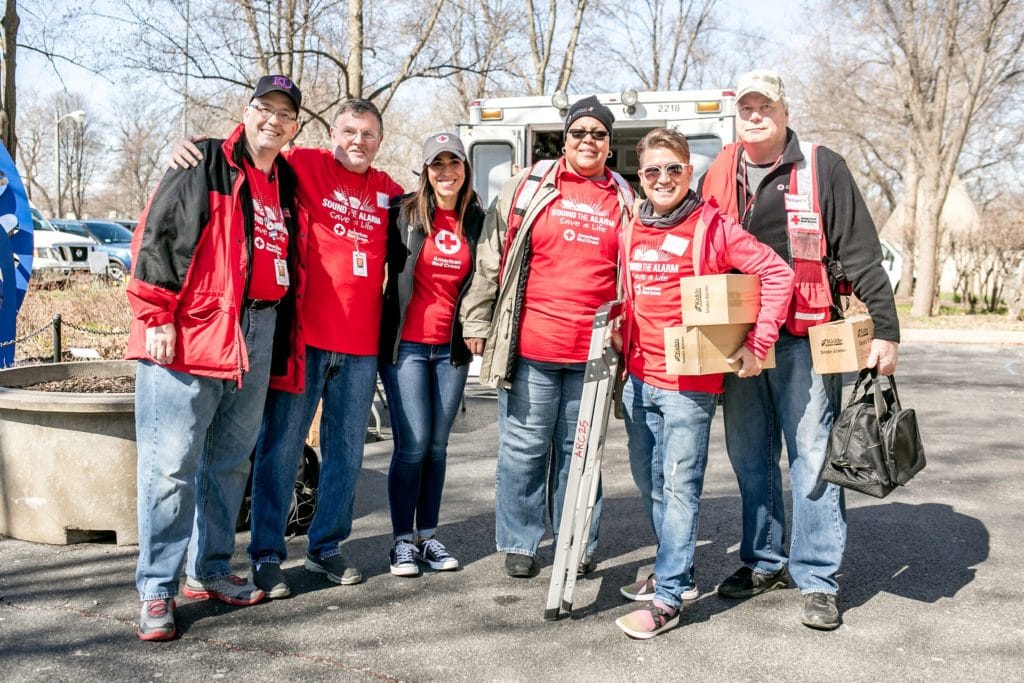This Hispanic Heritage Month, we’re highlighting Hispanic men and women who play a pivotal role in helping the American Red Cross accomplish its humanitarian mission every day. This week, we’d like to highlight Celena Roldan, CEO of the Red Cross Chicago and Northern Illinois Region. Here is a conversation we had with her around Hispanic Heritage Month and the importance of giving back.

Why is your Hispanic heritage important to you?
My grandparents on both my mother’s and father’s side were born in Puerto Rico. They came to the United States with limited education but had an incredible work ethic and a love for family and community. It was not always easy for them, but I am incredibly proud of the life my family has built here and how much they have contributed. To me, my heritage is about being together as a family, eating the food and dancing salsa, learning our history and knowing what it means to be Puerto Rican. Everyone’s unique heritage is what diversity is built upon. Understanding the traditions and culture that shape you is very important to me and is, in part, what makes me unique.
Why do you believe Hispanic Heritage Month is important?
I appreciate that Hispanic Heritage Month is a time when the contributions of Hispanic and Latino Americans are recognized. When we are able to celebrate Hispanic heritage and the accomplishments of Latinos, other Latinos have something to celebrate within themselves. Still today, I hear from Latina women that they did not know a Latina could be a CEO and that they have not seen a Latina in a position of influence. The next generation needs to see Latinas and know about their accomplishments so they know they can accomplish anything. Everyone benefits from learning and celebrating what makes each of us different.
How does your background influence your work with the Red Cross?
Every day, my work at the Red Cross is influenced by those around me – the clients we serve, the volunteers and the staff that supports me. During my first year at the Red Cross I started the Latino Engagement Outreach team with my colleague from Los Angeles, Jarett Barrios. This team was vital during the floods in Louisiana and then later during Hurricane Harvey when there was a great need to communicate with vulnerable communities. It was important to reach these communities and speak their language where they live. Sometimes in these communities, people think the Red Cross is a government organization. It was our goal to break down these barriers and misconceptions to reach people with humanitarian assistance.
What special point of view has your Hispanic heritage given you?
Last year, I deployed to Puerto Rico with my mother, who is a bilingual psychotherapist, after Hurricane Maria devastated the island. Together, we went out into the community to offer assistance. She offered disaster mental health counseling to many on the island, and I worked in community partnerships to provide linkages to critical services. I also had the opportunity to go out with one of the outreach teams distributing water filters to help the community get clean, drinking water. I never thought I would be in Puerto Rico on a megaphone offering clean water. This experience deeply impacted me and reinforced the love I have for my culture and my people. It was tragic to see the impact of Hurricane Maria on my Puerto Rico. Seeing the island that I loved and grew up visiting, devastated, was very difficult.

How and why did you get involved with the Red Cross?
I have spent 20 years working at nonprofit organizations focused on serving the most vulnerable populations. When I read the mission of the Red Cross, to “alleviate human suffering,” I was inspired. Then when I learned that the Red Cross is comprised of 90% volunteers, I knew I had to be part of an organization that could mobilize and execute its mission simply because of its massive volunteer base. These two things made me want to join the Chicago & Northern Illinois team.
Who are your role models?
While I know this is the case for many other people, for me it was certainly my parents. I grew up seeing my parents, who both came from very humble beginnings, live their lives with servant hearts. My father was the first employee of what became one of the largest organizations in the Midwest providing affordable housing to families in need of a home. My mother is a bilingual psychotherapist who has been a champion providing critical mental health support in diverse communities. Both encouraged me to go my own path and find my way to serve. They told me the road would often be challenging and that seeing the vulnerability and suffering in human kind can be heartbreaking. But when you are able to join with others to help support a person, a child, or a community, you are doing what we were put on this earth to do.
What does it mean for you to give back?
I grew up seeing and hearing my parents not only work with communities but work in communities. I am so grateful to have had incredible access to many things individuals in vulnerable communities do not have and for this reason I want to do what I can to help change access to services, education, and opportunities. We also need to remember that the individuals and communities we work with have great strengths. They have educators, organizers and businesses that know what their communities need. Giving back means working with and in these communities, partnering together to create change.

What is one thing you’d tell your 20-year old self?
Helping others is my life’s work. It’s the old adage that applies – “when you love what you do, you’ll never work a day in your life.” When I was 20, I was not imminently sure of my path, but I found it. I tell young women, very much like me, who are trying to find their path or their career to talk to others in various careers and determine what lights them up. What makes them happy. I learned early on that social work and helping others was my life’s calling. I speak with many young people regularly, and I am so excited because this next generation is going to do wonders for the world! They want to help, they want to serve, they want “to be the change they want to see in the world,” as Mahatma Ghandi so eloquently said.
How would you encourage others to get involved with the Red Cross or in their communities?
We live in a complicated society. Every day there are children going to school hungry, veterans who have served our country living on the streets, women who are bruised and battered on the inside and out. Many see them and walk by. I believe true empowerment is helping every person to be seen and heard. This is what motivates me and my desire for dignity and respect for every person. My goal at the Chicago and Northern Illinois Red Cross is to inspire that next generation of leaders to join me on this journey that is simultaneously difficult and empowering. I want them to know that there are so many ways you can help, through supporting our veterans, setting up a blood drive, or going out to a home fire. Our mission to prevent and alleviate suffering in the face of emergencies is what makes the Red Cross special. And I continuously tell people that if you want to really understand the Red Cross, then join us in putting on a Red vest to support people when they need us most.
What is your proudest life achievement?
I have a 14-year-old son, Joseph, and he has made me a very proud single mom. He is an incredible soccer player and a great student. Last year, I spent 20 days away from my son during two different deployments, first to Houston and then Puerto Rico. It was very difficult to be away from him, as is the case for so many of our volunteers who have to be away from their families. But I am so proud of the fact that he knows now what it means to be a Red Crosser. He sent me an email recently that said, “I’m so proud to be your son and to see you doing all this great work for many people, trying to help out as much as possible, and it is the best thing to show your son.” He knows, just like the families of so many of our volunteers, that he is helping by letting me go and help. I could not be prouder to know that he is becoming a citizen of the world with a servant’s heart and that he will go on to help others.

